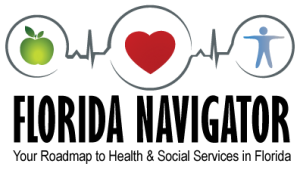Mental Health Issues for Older Adults
The Savvy Senior
By Robert Goodman, MSW
Mental Health Issues for Older Adults
- Many older adults experience problems with gambling, misuse of prescription drugs, alcohol, anxiety, and depression. The American Psychological Association estimates that around 20% of adults age 55 and above face mental health issues. Yet, less than 3 percent of older adults report seeing a mental health professional for their problems. Anxiety and depression are the most common mental health problems faced older adults. Mental health professionals have found that as a result of coronavirus restrictions the risk for social isolation and loneliness, anxiety and depression increases among seniors. Virtual communication does not replace in-person contact. The use of Facetime and WhatsApp are ways to see others in person.
The Medicare Advantage.com website lists several ideas for coping with these mental health issues:
- Use telemedicine as a way to contact your health care
- Use computers and smartphones to stay connected.
4. Make lifestyle improvements such as physical activities, improved nutrition and getting involved with hobbies and other activities to manage physical and mental health.
There are many symptoms associated with anxiety and depression. Some of the most common symptoms are:
- Hopelessness
- Sleep problems
- Social withdrawal
- Eating more or less than usual
- Loss or interest in once pleasurable activities, including sex
- Frequent crying
- Difficulty focusing, remembering, or making decisions
- Thoughts of death or suicide, or a suicide attempt
If you have several of these symptoms for more than two weeks, you may have depression.
The abuse or misuse of drugs was once considered a problem only among the young. According to the American Geriatric Society, substance abuse has become a growing problem among older adults as well. Misuse of alcohol or other drugs is a common cause of physical and mental health problems among older adults, especially men.
Four questions can provide a quick way to determine alcohol abuse:
- “Have you ever felt you should slow down on your drinking?”
- “Have you ever felt annoyed at criticism about your drinking?”
- “Have you ever felt guilty or bad about drinking?”
- “Have you ever felt the need for an “eye opener” in the morning to steady your nerves?”
A “yes” answer to any two of these questions indicates that a problem is likely? A “yes” answer to even one of question indicates a possible problem that should be further evaluated.
(Source: AGS Foundation for Health in Aging)
According to the Florida Council on Compulsive Gambling a growing percentage of Florida seniors are developing serious gambling problems. Symptoms of problem gambling among older adults include:
1. Preoccupation with gambling
2. Withdrawing from family, friends or regular activities because of gambling
3. Neglecting personal needs or health due to gambling
4. Gambling larger amounts of money to experience the thrill
5. Betting more than planned
6. Experiencing unaccounted blocks of time due to gambling
7. Communicating a sudden need for money or loans
8. Uncomfortable feelings or lying when questioned about gambling habits
9. Gambling to calm nerves, forget worries or reduce depression
10. Experiencing mood swings based upon winnings and losses
11. Pawning or selling personal items
12. Feeling restless or having anxiety when trying to cut down or stop gambling
13. Using retirement funds or other savings to gamble
14. Attempting to stop gambling but unable to do so
Answering “yes” to one of more of these questions may indicate a gambling problem. For information or help contact the 24 hour FCCG helpline at 1-888-236-4848.
There is no shame asking for help if you have one of these problems. Help is available through psychotherapy, consumer education, inpatient or outpatient management of symptoms, medication.
Call 211 for information on local programs to assist you in dealing with depression, anxiety, problem drinking, or problems related to gambling.
Many older adults experience problems with gambling, misuse of prescription drugs, alcohol, anxiety, and depression. The American Psychological Association estimates that around 20% of adults age 55 and above face mental health issues. Yet, less than 3 percent of older adults report seeing a mental health professional for their problems. Anxiety and depression are the most common mental health problems faced older adults. Mental health professionals have found that as a result of coronavirus restrictions the risk for social isolation and loneliness, anxiety and depression increases among seniors. Virtual communication does not replace in-person contact. The use of Facetime and WhatsApp are ways to see others in person.
The Medicare Advantage.com website lists several ideas for coping with these mental health issues:
- Use telemedicine as a way to contact your health care
- Use computers and smartphones to stay connected.
3. Make lifestyle improvements such as physical activities, improved nutrition and getting involved with hobbies and other activities to manage physical and mental health.
There are many symptoms associated with anxiety and depression. Some of the most common symptoms are:
- Hopelessness
- Sleep problems
- Social withdrawal
- Eating more or less than usual
- Loss or interest in once pleasurable activities, including sex
- Frequent crying
- Difficulty focusing, remembering, or making decisions
- Thoughts of death or suicide, or a suicide attempt
If you have several of these symptoms for more than two weeks, you may have depression.
The abuse or misuse of drugs was once considered a problem only among the young. According to the American Geriatric Society, substance abuse has become a growing problem among older adults as well. Misuse of alcohol or other drugs is a common cause of physical and mental health problems among older adults, especially men.
Four questions can provide a quick way to determine alcohol abuse:
- “Have you ever felt you should slow down on your drinking?”
- “Have you ever felt annoyed at criticism about your drinking?”
- “Have you ever felt guilty or bad about drinking?”
- “Have you ever felt the need for an “eye opener” in the morning to steady your nerves?”
A “yes” answer to any two of these questions indicates that a problem is likely? A “yes” answer to even one of question indicates a possible problem that should be further evaluated.
(Source: AGS Foundation for Health in Aging)
According to the Florida Council on Compulsive Gambling a growing percentage of Florida seniors are developing serious gambling problems. Symptoms of problem gambling among older adults include:
15. Preoccupation with gambling
16. Withdrawing from family, friends or regular activities because of gambling
17. Neglecting personal needs or health due to gambling
18. Gambling larger amounts of money to experience the thrill
19. Betting more than planned
20. Experiencing unaccounted blocks of time due to gambling
21. Communicating a sudden need for money or loans
22. Uncomfortable feelings or lying when questioned about gambling habits
23. Gambling to calm nerves, forget worries or reduce depression
24. Experiencing mood swings based upon winnings and losses
25. Pawning or selling personal items
26. Feeling restless or having anxiety when trying to cut down or stop gambling
27. Using retirement funds or other savings to gamble
28. Attempting to stop gambling but unable to do so
Answering “yes” to one of more of these questions may indicate a gambling problem. For information or help contact the 24 hour FCCG helpline at 1-888-236-4848.
There is no shame in asking for help if you have one of the above problems. Help is available through psychotherapy, support groups, consumer education, inpatient or outpatient care for management of symptoms and medication.
Call 211 for information on local programs to assist you in dealing with depression, anxiety, problem drinking, or problems related to gambling.


